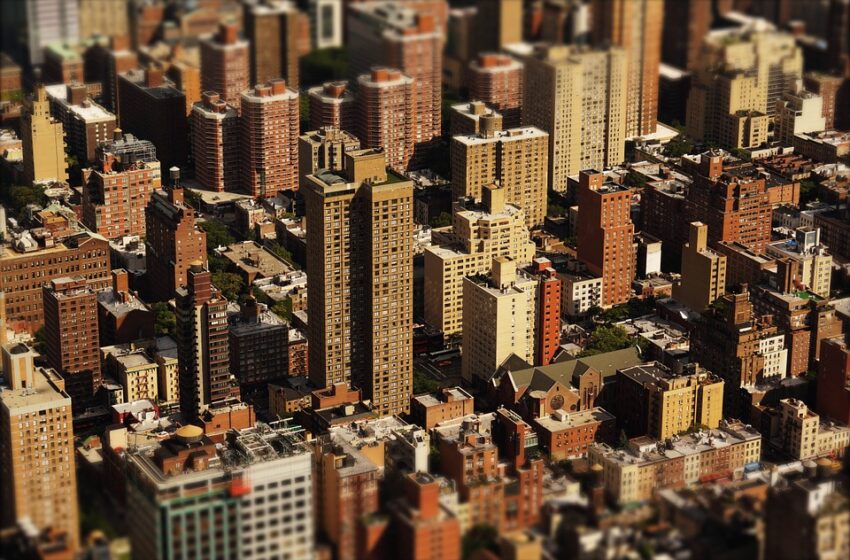Four Indian brothers win $7 billion in California property dispute

In one of the largest verdicts in the US in a decade, four brothers from India have been awarded $7 billion after a 20-year legal battle with a fifth brother over an alleged breach of a family partnership agreement.
After a five-month trial, a jury Monday ordered Haresh Jogani to pay his brothers Shashikant, Rajesh, Chetan and Shailesh Jogani more than $2.5 billion in damages and to divide up shares of their Southern California property empire.
In total, the Los Angeles Superior Court jury awarded the four successful brothers $2.5 billion in monetary damages and more than $4.5 billion in property interests, making the award one of the largest in the United States this year, according to the plaintiffs’ attorneys.
READ: Is Sundar Pichai on his way out at Google amid Gemini debacle? (March 2, 2024)
The case arose from a conflict involving the siblings, all from India, concerning more than 170 apartment buildings incorporating 17,000 units, primarily in the San Fernando Valley.
One of the brothers, Haresh Jogani, is listed on paper as the owner of the buildings. His attorneys maintained that there was no oral partnership as his siblings alleged and that he was the sole owner of the real estate portfolio.
But his brothers contended to the contrary and the jury agreed with them, determining that the defendant owed brothers Rajesh Jogani and Chetan Jogani $750 million in damages, plus real estate interests valued at more than $1 billion.
“We are grateful to the jurors for their decision,” said attorney Peter Ross of Ross LLP, who represented Rajesh and Chetan Jogani. “Thanks to them, a long-standing wrong has been corrected, and this brother-against-brother war can come to an end.”
Shashikant Jogani, who was represented by another law firm, received the biggest payout; the jury awarded him $4.75 billion, and the fifth brother, Shailesh, received $570 million.
READ: American dream, broken by death and despair (January 28, 2024)
The jury also found that prevailing brothers Rajesh, Chetan and Shashikant are entitled to punitive damages. The hearing regarding the punitive damages will take place on Friday.
The 2003 lawsuit already has been through 18 appeals, generations of attorneys and five judges in Los Angeles Superior Court.
It’s drawing comparisons from some of the lawyers to the fictional Victorian-era probate case that Charles Dickens wrote about in his 1852 novel Bleak House. They’re calling Jogani v. Jogani the new Jarndyce v. Jarndyce, but with a twist.
“At end of the book, there was no money, hence the name, Bleak House,” said Peter Ross, an attorney who represents Chetan and Rajesh Jogani. “That’s not the case here. There’s billions here that remain to be distributed.”
The Jogani family from Gujarat, India, built a fortune in the global diamond trade, establishing outposts in Europe, Africa, the Middle East and North America.
Shashikant “Shashi” Jogani moved at age 22 in 1969 to California, where he began a solo firm in the gem business and started to build a property portfolio, according to a complaint he filed in 2003.
The properties suffered losses in the recession of the early 1990s, which worsened after the 1994 Northridge Earthquake killed 16 people in one of his buildings, leading Shashi to bring in his brothers as partners.
The firm then embarked on a buying spree that eventually built the portfolio to roughly 17,000 apartment units with the brothers collaborating until Haresh “forcibly removed” his sibling from managing the firm and refused to pay him, according to Shashi Jogani’s complaint.
Haresh Jogani contended that without a written agreement, his brothers couldn’t prove they had a partnership with him.
But the jury found that Haresh had broken an oral contract. Jurors heard testimony that oral agreements are customary in both the diamond trade and among Gujaratis.
“The law is you can have oral contracts that are just as valuable as written contracts,” said attorney Steve Friedman, an attorney for Shashi Jogani.
The jury concluded Shashi owns 50% of the real estate partnership, followed by 24% to Haresh, 10% to Rajesh, 9.5% to Shailesh and 6.5% to Chetan, the youngest, who is now 62 years old, according to Ross. The initial damages award for Shashi, now 77, was $1.8 billion.
The properties generated as much as $137 million a year in net operating income, according to Michael Friedman, 37, who with his father, Steve, has represented Shashi since 2014, the year after he passed the bar to practice law.
“There’s an enormous portfolio that Shashi built,” he said. “And it sustains itself.”

